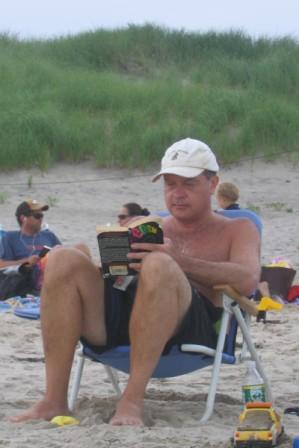A final few thoughts on Beethoven - the Piano Sonatas

I know that I wrote about Beethoven last week, but there's a lot of interesting stuff to talk about, and I'm still being subjected to a massive Beethoven overload on the radio. And, he has his own website too:
http://www.beethoven.com
Not bad for a dead white guy.
Over the course of his career, Beethoven wrote 32 piano sonatas, 16 string quartets and 9 symphonies. Why so many piano sonatas? There are a number of reasons, like:
- Most were written early in his career, to help make a name for himself. They were a way of showcasing his talents as a composer and pianist, and had an immediacy that other, multi-instrument forms couldn't offer. He could compose and perform them himself for potential patrons, music publishers, more established musicians, etc. As a virtuoso pianist, with a few sonatas in hand, Beethoven was a one man band.
- They were the ideal vehicle for trying out some of his most daring (some said outlandish) compositional ideas because he didn't need anyones cooperation. Many of those ideas were refined and reintroduced in the quartets and symphonies.
- The sonatas were a way of encouraging piano makers to increase the tonal and sonic range of the instrument and make them sturdier. Like the modern day rockers who frequently destroy guitars during a performance, Beethoven would frequently break strings and even hammers from playing the instrument so hard.
Here is a link to stream or download all of his sonatas:
http://w3.rz-berlin.mpg.de/cmp/beethoven_piano_sonatas.html
The Moonlight (number 14) and the Hammerklavier (number 29) are probably the most famous. The Hammerklavier is actually more typical Beethoven, with the bold opening and unexpected changes in harmony.
Two other sonatas performed by Andreas Haefliger are available here:
http://magnatune.com/artists/albums/haefliger-perspectives2cd1/
Later in life, he would move away from the sonatas mostly, but they would continue to provide a laboratory or proving ground for his many musical innovations.
So listen, enjoy and be uplifted.
regards,
Richard


0 Comments:
Post a Comment
<< Home